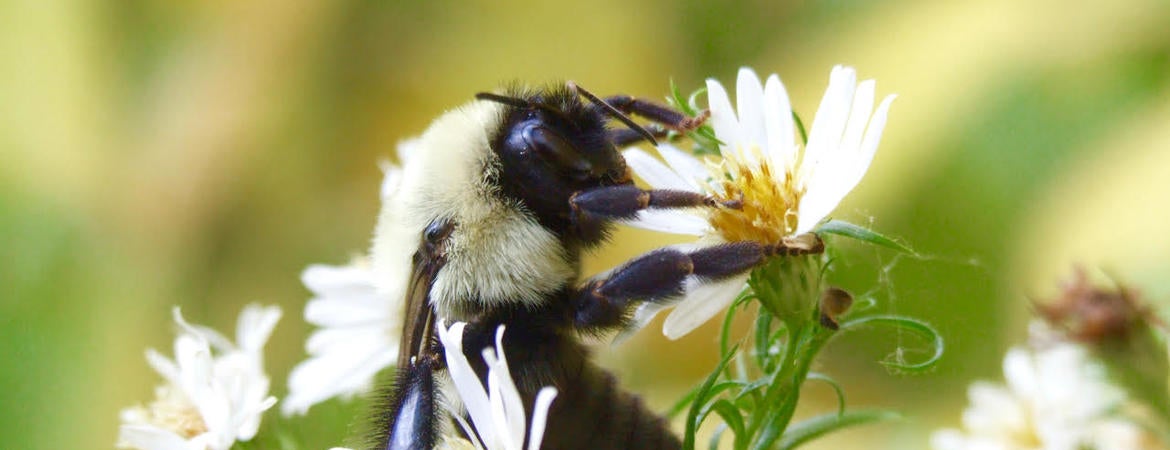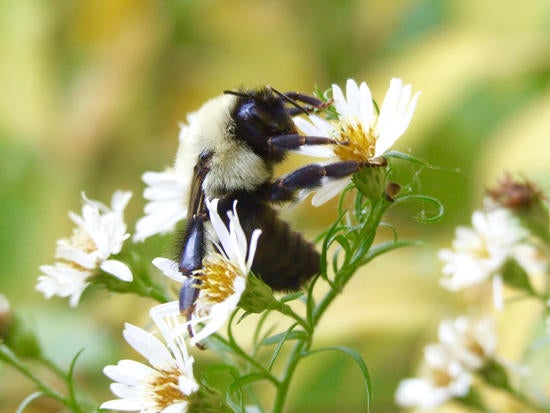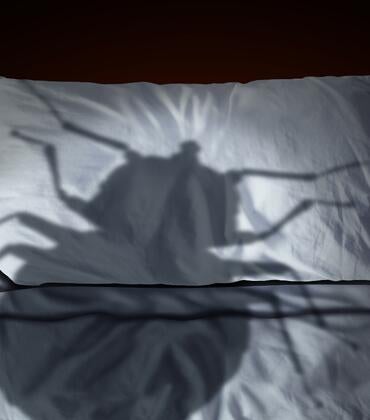
There has been a lot of buzz about honeybees’ failing health because they pollinate our produce. Less well known is how critical bumblebees are for some of our favorite foods. And their numbers are also rapidly declining.
A new study from the University of California, Riverside, reveals the loss of plant diversity harms the humble bumble at a critical stage in its development from egg to adult.
Study lead Hollis Woodard, assistant professor of entomology, explained bumblebees perform a type of pollination that honeybees do not. The fuzzy insects use their jaws to shake flowers until they release their pollen, and this process is essential for food crops, such as tomatoes, blueberries, cranberries, strawberries, peppers, eggplants, and potatoes.
“If we didn’t have bumblebees, you could grow tomatoes but not on the scale needed to, for example, add enough lycopene to the human diet — an antioxidant that protects cells in our bodies from damage,” Woodard said. “Bumbles are at the crux of how we live today, and how we’ll live in the future.”
Bumbles also differ from honeybees in their origins. While honeybees were brought to North America to pollinate crops, their bumblebee cousins are native. “Because they co-evolved with our native plants, they tend to be particularly excellent pollinators of them,” Woodard said.
Unfortunately, at least one species of bumblebee is already on the endangered species list. Four additional species native to California are also being considered for state listing, Woodard said.
Other studies have examined factors in the decline of bumbles, including exposure to widely used insecticides, and their adaptation for cold climates as the planet heats up.
“Our study is the first to look at diet during this stage where queen bumbles are trying to start a nest, and to show that the diets they have access to impact how quickly they can transition to having helpers,” Woodard said.
To understand the effects of various diets, Woodard’s team ran an experiment where the queen bees were fed various pollen diets dominated by a single plant species.
Diet did not appear to affect the number of eggs a queen might lay, nor how quickly she started laying. However, the team found queens hatched broods that reached adulthood several days slower, depending on which pollen they ate.
A difference of several days can make a massive difference for queens who are trying to get their nests started.
“The delay in having workers can significantly stress the queen,” Woodard said.
Bumblebees have an unusual life cycle compared to many other bee species that nest year-round, including honeybees. In summer, the queen and her workers are social, collecting food for the colony. The colony dies off at the end of the season, and only new queens are alive at this stage. If the queens mate successfully, they will hibernate like bears.
In spring, the queens re-emerge to collect food, look for nests and lay their eggs —up to 400 of them. During this time, the queens bear the sole responsibility for foraging, feeding, protecting all the eggs, and maintaining the nests.
“Think about if you’re the only person in your house to go get food, do all the cleaning, everything. As soon as you have help at home, a huge burden is lifted,” she said.
Though the insects in this experiment benefitted most from aster pollens, other types of plants may be just as beneficial. This study tested three out of thousands of possible plant diets and found one to be better for the broods.
“Without a variety of pollens available,” Woodard said, “the queens are constrained to fewer options, some of which appear to be bad for them.” Therefore, she advises people to plant a diverse mix of plants that flower early in spring to give bumblebees an advantage.
“The mechanisms that affect these bees are complicated in so many ways, but in other ways it’s so simple. Bees need diverse diets just like we do, and they suffer when they don’t get them,” Woodard said. “For every queen that doesn’t start a nest successfully, there are hundreds of bumblebees lost. The consequences scale up fast.”




